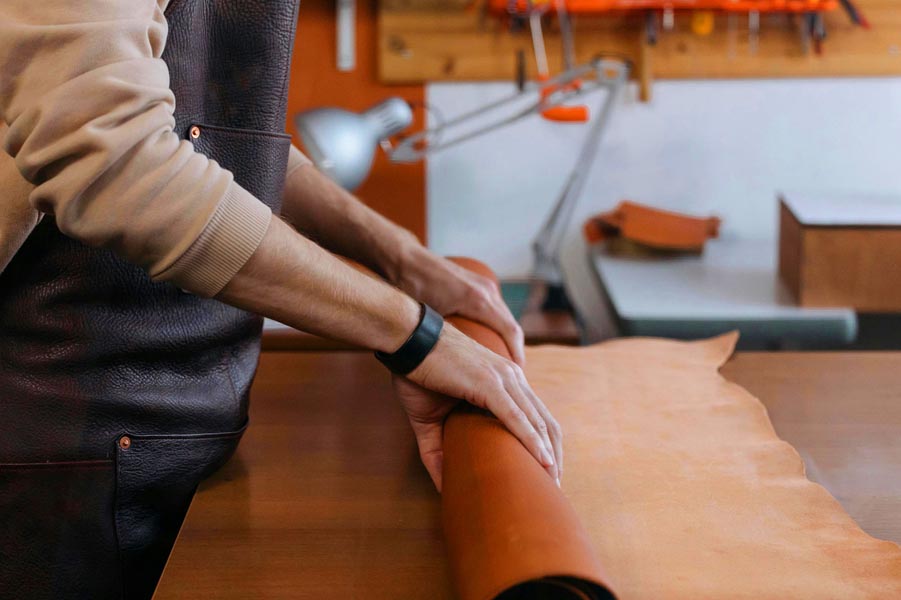
28 Nov What Makes Leather a Preferred Material in Luxury Branding?
Leather has long been synonymous with luxury, evoking images of high-end fashion, exquisite craftsmanship, and timeless elegance. But what is it about this material that continues to make it a favorite among luxury brands?
Timeless Elegance and Versatility
Leather exudes a sense of sophistication that few materials can match. Its rich texture and natural beauty lend themselves to a wide range of applications, from handbags to footwear and upholstery.
Key Attributes of Leather’s Elegance:
- Classic Aesthetic: Leather never goes out of style, making it a staple in luxury collections.
- Adaptability: It complements various design styles, from modern to vintage, making it suitable for diverse branding strategies.
This timeless appeal ensures that leather remains relevant, transcending fleeting fashion trends.
Exceptional Durability
One of leather’s standout features is its remarkable durability. When properly cared for, leather products can last a lifetime, making them an investment rather than a mere purchase.
- Longevity: High-quality leather can withstand wear and tear, retaining its beauty over time.
- Patina Development: With age, leather develops a unique patina, enhancing its character and appeal.
This durability aligns perfectly with luxury branding, where quality and longevity are paramount.
Craftsmanship and Artistry
Luxury brands often emphasize their commitment to craftsmanship, and leather allows artisans to showcase their skills. The process of working with leather requires expertise, resulting in products that reflect exceptional artistry.
Craftsmanship Highlights:
- Handmade Quality: Many luxury leather goods are handcrafted, ensuring attention to detail.
- Bespoke Options: Custom leather products cater to discerning consumers, allowing for personalization.
This dedication to craftsmanship not only elevates the product but also reinforces the brand’s identity as a purveyor of luxury.
Status Symbol
Leather has long been regarded as a status symbol. Owning a high-quality leather item often signifies affluence and sophistication, appealing to consumers who want to showcase their lifestyle.
- Exclusivity: Limited-edition leather products often carry a premium, enhancing their allure.
- Cultural Associations: Leather is often linked to wealth and success, making it desirable among luxury consumers.
This association with status further cements leather’s position in luxury branding.
Sustainable Luxury
As sustainability becomes increasingly important, luxury brands are turning to responsibly sourced leather to appeal to eco-conscious consumers. The shift toward sustainable practices enhances leather’s appeal while aligning with modern consumer values.
- Ethically Sourced Leather:
Brands are focusing on transparency and responsible sourcing in their leather supply chains.
- Eco-Friendly Treatments:
Innovations in tanning processes are reducing the environmental impact of leather production.
By prioritizing sustainability, luxury brands can cater to a growing demographic that values ethical consumption without compromising quality.
Conclusion
Leather’s enduring appeal in luxury branding stems from its timeless elegance, exceptional durability, and the artistry of craftsmanship. As a status symbol, it continues to attract consumers seeking sophistication and exclusivity.
Moreover, with the rise of sustainable luxury, leather adapts to modern values while maintaining its prestigious reputation.


